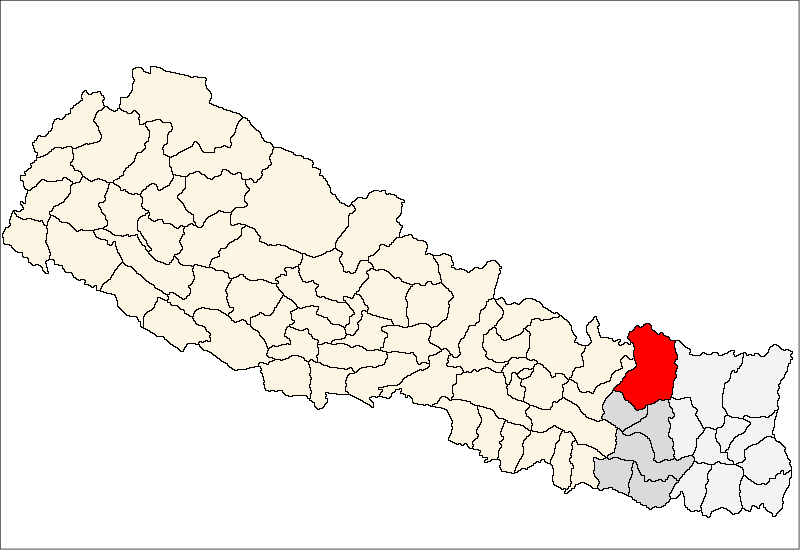
OR
Opinion
Transhumanist Ideals: Techno-Libertarianism to Anarcho-Capitalism
Published On: July 14, 2023 08:00 AM NPT By: Bimal Pratap Shah

Nepal's relentless pursuit of obsolete ideologies, coupled with an entrenched fanaticism towards them, evokes profound sorrow, stifles progress, and leaves a lingering melancholic mark on the nation. In its quest for liberation, Nepal must fervently embrace novel, forward-thinking philosophies and ideologies, daringly reimagining the very essence of governance and democracy, harmoniously tailored to suit the ever-evolving demands of the 21st century. Instead of indulging in fruitless deliberations that hold no immediate relevance to the lives of our fellow citizens, particularly those at the bottom of the social pyramid, Members of Parliament (MPs) should shift their focus towards envisioning a radical future that will undergo complete transformation due to the advent of digital technologies. "They must take decisive action to prepare themselves and society for this impending world, and, above all, it is crucial to halt the proliferation of discussions better suited for middle school debate competitions and focus attention on the critical issues at hand.
The transhumanist movement encapsulates a captivating tapestry of ideas and aspirations, intricately interwoven, all driven by a shared objective: the relentless pursuit of expanding the boundaries of human potential through advancements in science and technology. This movement has now matured into a prominent political ideology, illuminating a convergence of ideologies that are propelled by a collective yearning: the transcendence of individual humans through the vast frontiers of science and technology. Within this multidimensional landscape, transhumanist politics embraces a rich mosaic of specific themes, ranging from the audacious prospects of space migration to the ethereal possibilities offered by cryogenic suspension. Firmly grounded in resolute conviction, transhumanist politics stands unwavering in its commitment to harness the full potential of all available technologies, embarking on a shared voyage to amplify human capacities and forge a future characterized by enhanced well-being and boundless human potential. In the context of Nepal, transhumanism represents a relatively nascent concept, still in the process of finding solid ground, while the emergence of transhumanist political parties remains a promising prospect yet to be fully realized.
Transhumanism draws inspiration from notable predecessors and is influenced by various intellectual currents throughout history. Enlightenment philosophy, championed by renowned thinkers such as Francis Bacon and René Descartes, laid the groundwork for the belief in utilizing science and reason to uplift human conditions. Evolutionary theory, prominently exemplified by Charles Darwin's seminal work "On the Origin of Species," provided a scientific framework that fueled discussions around human adaptation. Moreover, the field of cybernetics, pioneered by visionary figures including Norbert Wiener and Alan Turing, delved into the realms of merging humans with machines, exploring the profound implications of such convergence. Earlier movements akin to transhumanism, like the futurism of the 20th century, as exemplified by the visionary minds of John Desmond Bernal and Herbert George Wells, engaged in speculative contemplations on the potential of human enhancement and the transformative impact of technology on human evolution. These intellectual antecedents have laid the foundation upon which transhumanism now stands, weaving together diverse strands of thought in its relentless pursuit of expanding human capabilities through science and technology.
The term 'transhumanism' gained widespread recognition in its present sense following the influential publication of Julian Huxley's in 1957. Since then, the transhumanist movement has witnessed various noteworthy political developments and initiatives, especially after the 1980s. In 1992, Natasha Vita-More, an esteemed transhumanist, futurist thinker, artist, and designer, emerged as a prominent figure in the movement. Notably, she assumed the role of Councilperson for the 28th Senatorial District of Los Angeles in the United States of America, having been elected by the constituents. Initially aligning herself with the Green Party, Vita-More eventually resigned from the party within a year. Her decision was driven by a sense that the party's emphasis on environmentalism overshadowed her unwavering commitment to the ideals of transhumanism.
In 2012, a momentous turning point unfolded within the Russian political landscape, as the Longevity Party emerged, propelled by an unwavering dedication to transhumanism. Co-founder Maria Konovalenko fearlessly championed the cause, boldly proclaiming the party's resolute commitment to being "100% transhumanist." Their ardent pursuit involved the establishment of the Longevity Party as a formidable political force, employing the electoral process as a means to advance their transformative agenda. Concurrently, visionary Dmitry Itskov spearheaded the groundbreaking 2045 Initiative, introducing their audacious proposition: the formation of the "Evolution 2045" political party. Evolution 2045 is a futuristic initiative that aims to explore and advance the concept of transhumanism, merging technological advancements with human evolution. It effectively thrusts transhumanist ideals into the very heart of political discourse.As a result, the boundaries of human potential were profoundly redefined, igniting fervent discussions and shaping the trajectory of future political landscapes.
The emergence of the Alianza Futurista (ALFA) in Spain, translating to "Future Alliance" in English, as a political party in October 2013, marked a significant milestone in embodying transhumanist goals and principles.ALFA represents a platform advocating for the responsible and ethical use of technology to advance human potential and shape a progressive future. This party, firmly rooted in the transhumanist ethos, served as a compelling manifestation of the movement's aspirations. A few years later, ZoltanIstvan, an esteemed American transhumanist, author, and futurist renowned for his unwavering advocacy of radical life extension, human augmentation, and the exploration of outer space, gained prominence through his presidential campaign in the 2016 United States elections. The name "Transhumanist Party" has also resonated with groups in the United Kingdom and Germany, highlighting the global reach and impact of transhumanist ideals. These ideals encompass a diverse range of ideologies, including social futurism, techno-progressivism, techno-libertarianism, and anarcho-capitalist transhumanism, collectively constituting the expansive realm of political transhumanism.
Social futurism is an interdisciplinary approach that combines futurism and social theory to envision and propose future social structures, systems, and policies. It explores the potential impact of emerging technologies on society and seeks to harness them for addressing social issues and promoting sustainability. By integrating forward-thinking and social analysis, social futurism aims to create a more equitable, sustainable, and prosperous future society by exploration and analysis of emerging technologies, such as artificial intelligence, automation, biotechnology, and renewable energy, to understand their potential impact on society. They seek to leverage these technologies to address pressing social problems, promote sustainability, and foster social progress. In addition, social futurism advocates for the examination and reimagination of existing economic systems, governance structures, education models, and social norms.
Techno-progressives embody the ethos of techno-progressivism, an ideology that combines the principles of technological advancement and social progress. They firmly believe that technology, when wielded with careful consideration and a strong ethical foundation, holds the potential to tackle pressing societal challenges and uplift the human condition. As such, techno-progressives advocate for the responsible development and utilization of technology to address issues like inequality, environmental sustainability, and social justice. Their overarching goal is to ensure that the benefits arising from technological advancements are accessible to all, while upholding democratic decision-making processes and safeguarding fundamental human rights amidst the rapid pace of technological change. Moreover, techno-progressives perceive technology not as an end in itself, but as a powerful tool for crafting a future that is characterized by greater equity, sustainability, and inclusivity for all of humanity.
Moving on, techno-libertarianism represents a fusion of libertarian principles with a profound recognition of technology's pivotal role in shaping society. At its core, this ideology champions individual liberty, advocates for limited government intervention, and extols the virtues of free markets. Techno-libertarians perceive technology as a powerful tool for advancing these core tenets, advocating for minimal governmental regulations that could impede innovation and hinder progress in the digital sphere. Paramount to their philosophy are personal freedoms, privacy rights, decentralized networks, and the promotion of open-source technologies. Techno-libertarians firmly assert that technology not only empowers individuals but also fosters a conducive environment for entrepreneurial endeavors while propelling economic growth. Inextricably linked to the techno-libertarian movement is bitcoin, the renowned cryptocurrency that epitomizes their principles of decentralized financial systems and individual autonomy in the digital realm.
Anarcho-capitalist transhumanism represents a unique amalgamation of anarcho-capitalist principles and transhumanist ideals. This ideology advocates for a society devoid of a centralized government, wherein voluntary exchanges, and private property rights reign supreme, harmoniously coexisting with the utilization of technology to amplify human capabilities. Anarcho-capitalist transhumanists ardently uphold the values of individual freedom and unrestrained pursuit of technological advancements, including biohacking and life extension, without the interference of governmental authorities. Envisioning a future defined by individual autonomy, they envision a landscape where individuals have the liberty to transcend their biological limitations and carve out their own destinies through the decentralized interactions facilitated by a free market. In this vision, the forces of a liberated market drive technological progress and personal enhancement, fostering an environment where human potential knows no bounds.
In contrast, democratic transhumanism, coined by James Hughes in 2002, represents a convergence of transhumanist ideals with liberal, social, and radical democratic political views. Grounded in the belief that rational control over natural and social forces can enhance human well-being, democratic transhumanists draw inspiration from rule utilitarianism and non-anthropocentric personhood theory. They prioritize equal access to human enhancement technologies as a means to foster social equality and mitigate socioeconomic disparities. Positioned between technorealism and techno-utopianism, democratic transhumanism presents a radical form of techno-progressivism, harnessing emerging technologies to address power imbalances within society and envisioning a future where individuals have greater control over their own destinies.
Transhumanism has encountered criticism primarily from bioconservatives who hold reservations about utilizing technology for human enhancement or alteration. Bioconservatives, in contrast, advocate for the preservation of natural human qualities and traditional values, drawing attention to ethical concerns and potential risks associated with radical technological interventions. They emphasize the significance of comprehensively understanding human nature and the potential benefits that responsible scientific innovation can offer, while figures like Francis Fukuyama label transhumanism as the world's most dangerous idea, asserting the importance of human essentialism.Leon Kass, who served as the chairman of the President's Council on Bioethics under President George W. Bush Jr. from 2001 to 2005, has criticized what he perceives as the degradation of human nature through excessive technical mastery. In essence, bioconservatives stand against techno-transcendental outcomes, defending human nature as a moral category deserving of protection.
Transhumanist politics has emerged as a platform that converges various ideologies, all dedicated to transcending the limitations that humanity faces. Transhumanist political parties play crucial roles in shaping the future by serving as advocates and raising awareness about the possibilities and implications of emerging technologies. Moreover, they contribute to the development of policies that ensure responsible and ethical use of technology, while also providing representation for individuals who support the transhumanist agenda. These parties engage in coalition building, collaborating with like-minded groups to amplify their influence and affect meaningful change. Furthermore, they actively support research and development in relevant fields, and facilitate discussions on ethical considerations, ensuring that technology is used in a responsible and equitable manner. Through their collective efforts, transhumanist political parties are actively shaping a future that embraces the potential of science and technology to enhance human well-being and expand the limits of human potential.
The time has come for Nepal to emancipate itself from the lingering vestiges of antiquated ideologies that have impeded our progress. The onerous burden of communism, socialism, and other prevailing or even outdated political doctrines and governance mechanisms no longer resonate in our ever-evolving and interconnected digital world of cyborgs and transhumanists, where the boundaries between humans and technology blur.It is imperative for Nepal to liberate itself from these constraints of archaic thoughts and embrace a new narrative that harmonizes with the vibrant spirit of our time. By doing so, the country can embark on a transformative journey free from the shackles of outdated paradigms. Now, the million-dollar question is: When will a political party dedicated to transhumanism emerge in Nepal?
You May Like This

Complete education, full health could double Nepal's GDP per capita: WB
KATHMANDU, June 7: Nepal has the potential to double its Gross Domestic Product (GDP) per capita in the long run if... Read More...

Stocks end turbulent year in the red
KATHMANDU: Stocks began the last trading day of the year on a slightly positive note and traded higher in early... Read More...

Manang clinches eighth A-Division League title with two games to spare
KATHMANDU, Dec 28: Manang Marshyangdi Club has clinched the Martyr’s Memorial A-Division League with two games to spare, after defeating... Read More...




Just In
- NEA Provincial Office initiates contract termination process with six companies
- Nepal's ready-made garment exports soar to over 9 billion rupees
- Vote count update: UML candidate continues to maintain lead in Bajhang
- Govt to provide up to Rs 500,000 for building houses affected by natural calamities
- China announces implementation of free visa for Nepali citizens
- NEPSE gains 14.33 points, while daily turnover inclines to Rs 2.68 billion
- Tourists suffer after flight disruption due to adverse weather in Solukhumbu district
- Vote count update: NC maintains lead in Ilam-2














Leave A Comment